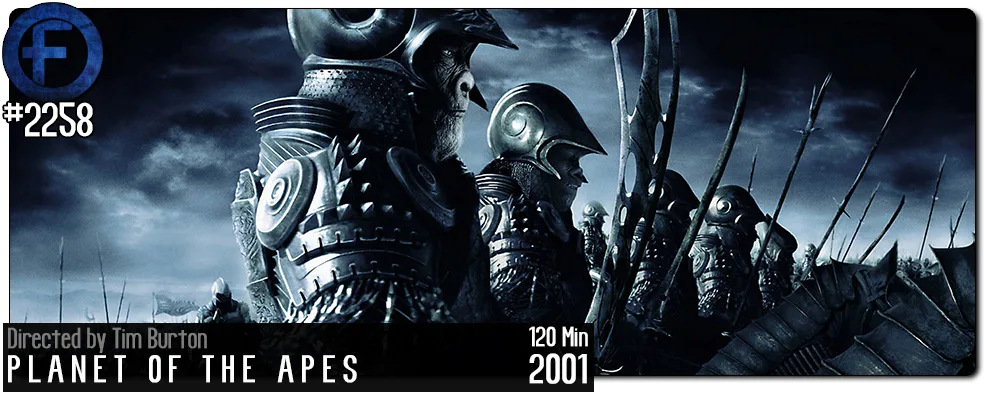Movie Review – Planet Of The Apes (2001)
Principal Cast : Mark Wahlberg, Tim Roth, Helena Bonham Carter, Michael Clarke Duncan, Kris Kristofferson, Estella Warren, Paul Giamatti, Cary-Hiroyuki Tagawa, David Warner, Erick Avari, Luke Eberl, Lisa Marie, Evan Parke, Glenn Shadix, Charlton Heston (uncredited).
Synopsis: In 2029, an Air Force astronaut crash-lands on a mysterious planet where evolved, talking apes dominate a race of primitive humans.
********
In the landscape of cinematic reimaginings, Tim Burton’s take on the classic Planet of the Apes emerges as a visually striking, albeit flawed, entry. The 2001 remake of the classic 60’s sci-fi masterpiece, starring Mark Wahlberg, attempts to breathe new life into the iconic tale of global simian dominance. However, it falls prey to a common pitfall for films directed by Tim Burton – a focus on style at the expense of substance.
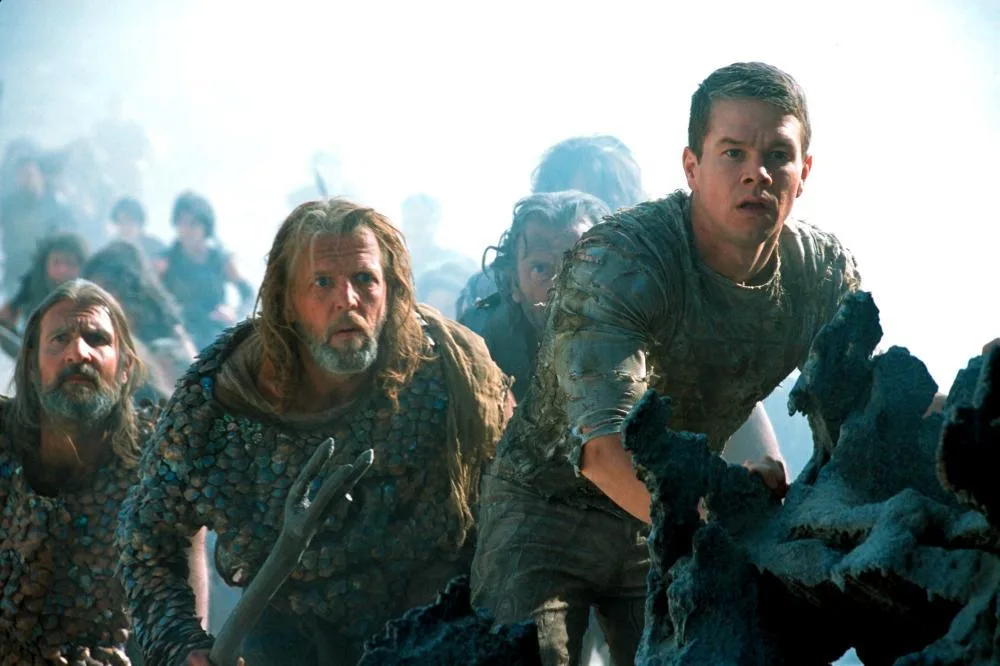
Initially set in the near future, astronaut Captain Leo Davidson, portrayed by Mark Wahlberg, finds himself blasted through space and then stranded on a mysterious planet dominated by highly intelligent apes. This inversion of societal norms becomes a thematic undercurrent, leading Leo on a journey from a bewildered astronaut to a reluctant hero. The power struggles within the simian society, personified by Tim Roth’s power-hungry General Thade and Helena Bonham Carter’s empathetic Ari, mirror the broader clash between human and ape civilizations. Paul Giamatti adds whimsy as the irrepressible orangutan Limbo, creating a well-rounded ensemble that transcends the constraints of simian appearances. As Leo’s evolution unfolds against the backdrop of evolving landscapes and intricate world-building, the film explores themes of hierarchy, prejudice, and the inherent struggle for dominance.
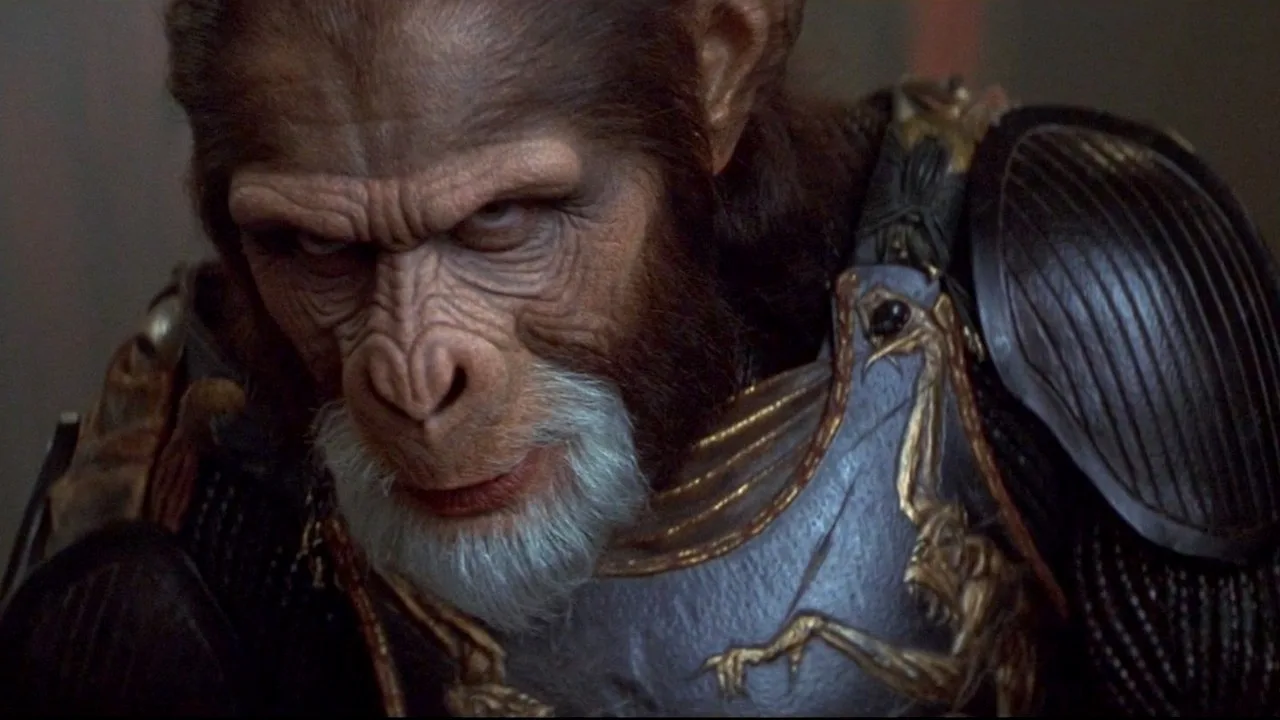
Burton’s reimagining diverges from the original, infusing a more dynamic narrative and lush environments. Technological advancements in prosthetics breathe authenticity into the simian characters, particularly in Roth’s commanding portrayal of General Thade. The clash between humans and apes becomes a metaphorical battleground, inviting contemplation on the complexities of societal dynamics and the enduring power of the human spirit. In this cinematic opus, Burton crafts a visually captivating and thematically rich narrative that, while flawed from an audience engagement perspective, is itself a thought-provoking exploration of a world turned upside down. Sadly, though, it fails to capitalise on many of the intriguing plot elements it throws at the viewer.
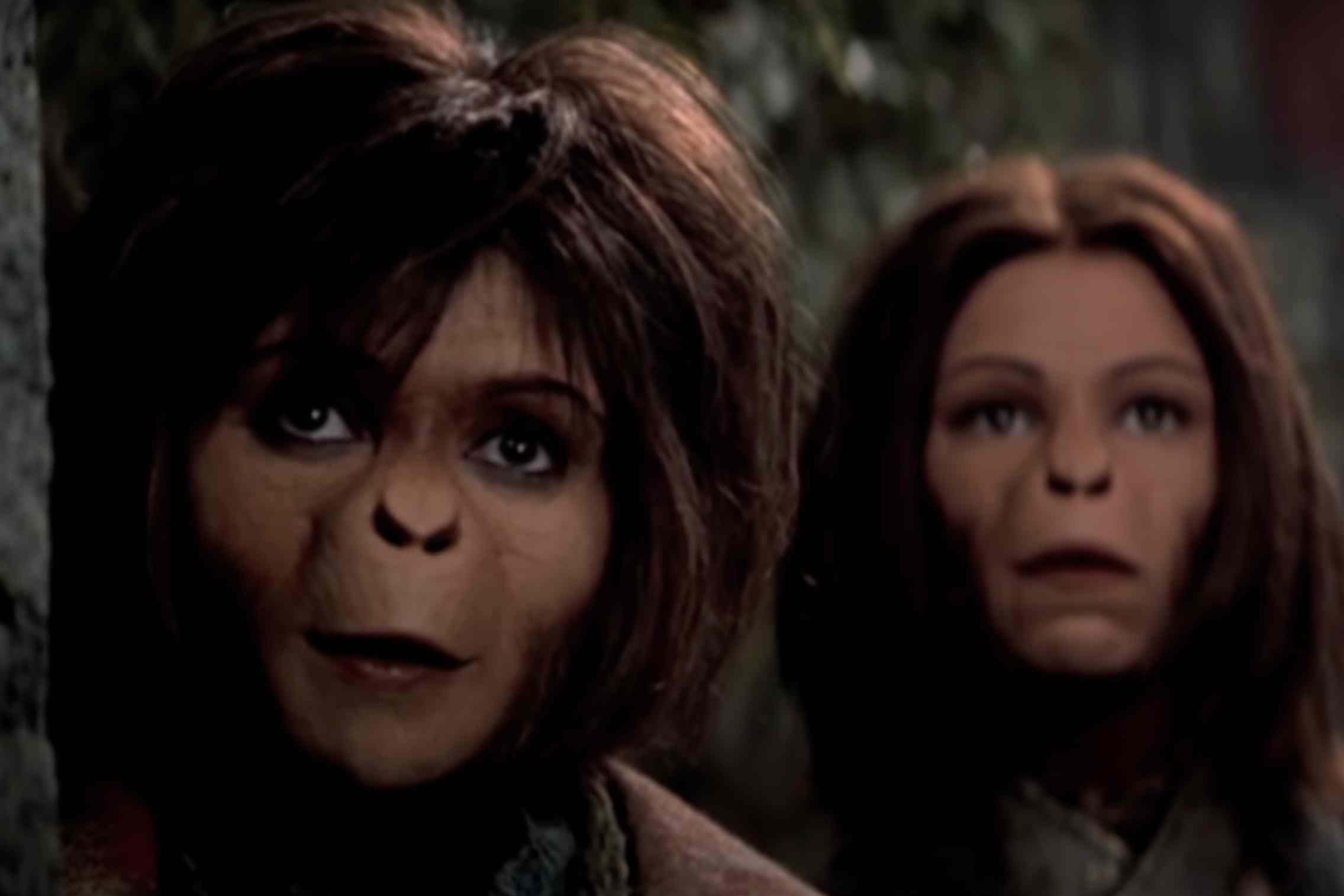
Whenever we mention the sprawling all-star cast Burton assembles here, it’s also essential to acknowledge Mark Wahlberg’s portrayal of Captain Leo Davidson, the linchpin of the narrative. Wahlberg deftly navigates Leo’s journey from a bewildered astronaut to a reluctant hero, injecting a modern sensibility into the character. His evolving demeanour becomes the audience’s conduit through the alien landscapes, grounding the film in a relatable human experience. Often I’ve found Wahlberg’s broad accent and performance style to be antithetical to the cinematic experience, but in Planet of the Apes I think he perfectly encapsulates the slackjawed action hero needed to facilitate audience wonder and awe here.
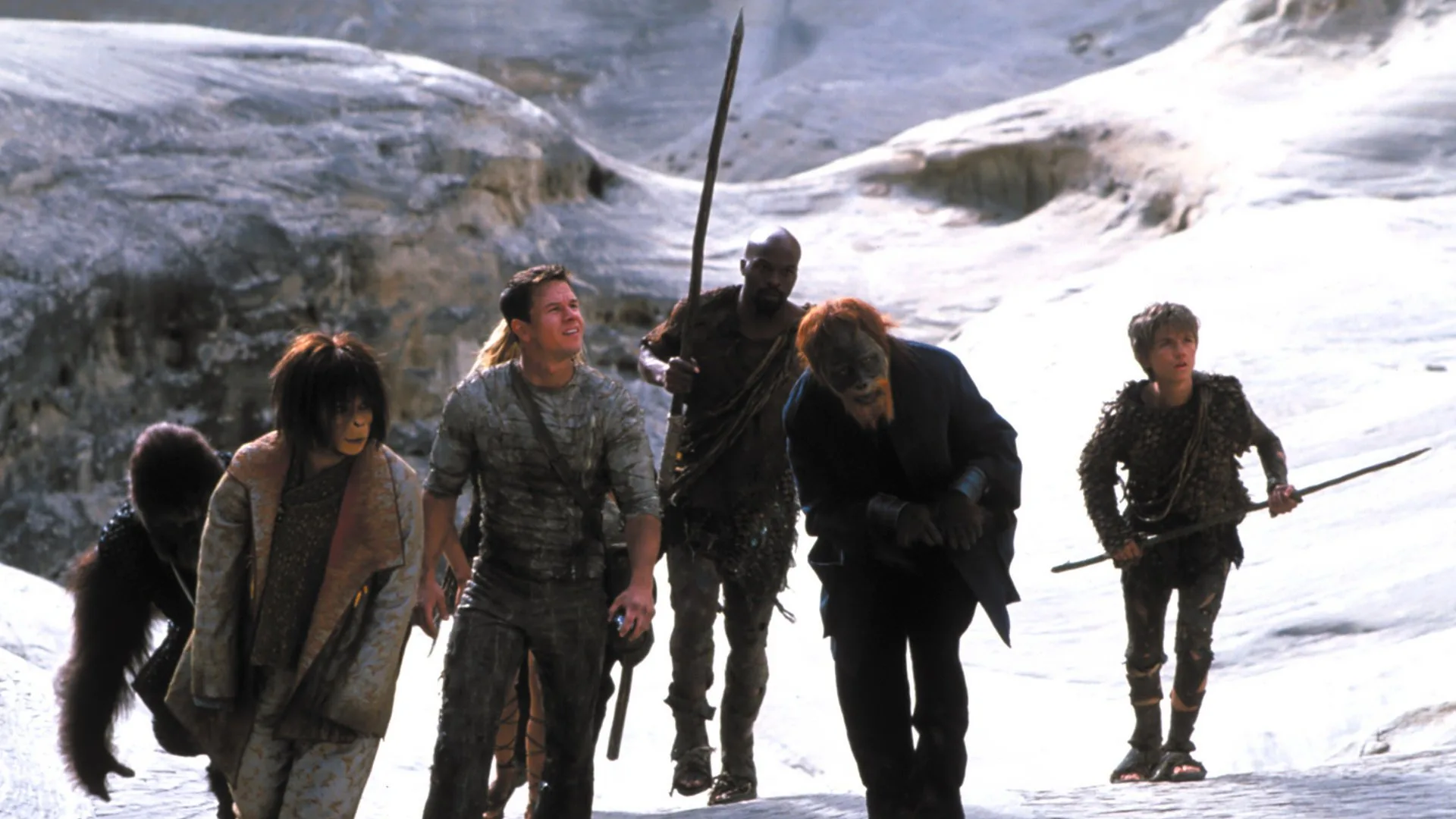
At the forefront of the supporting cast is Tim Roth’s visceral portrayal of General Thade. Roth masterfully channels a Shakespearean grandeur, infusing Thade with a potent blend of rage and ambition. Beyond the prosthetic enhancements, Roth’s expressions and physicality create a character that transcends the screen, leaving an indelible mark on the narrative. Thade’s presence is commanding, a testament to both Roth’s acting prowess and the advancements in prosthetic technology. The subtle nuances in his performance, from menacing glares to calculated movements, contribute to a formidable antagonist who becomes a linchpin in the power struggle within simian society.
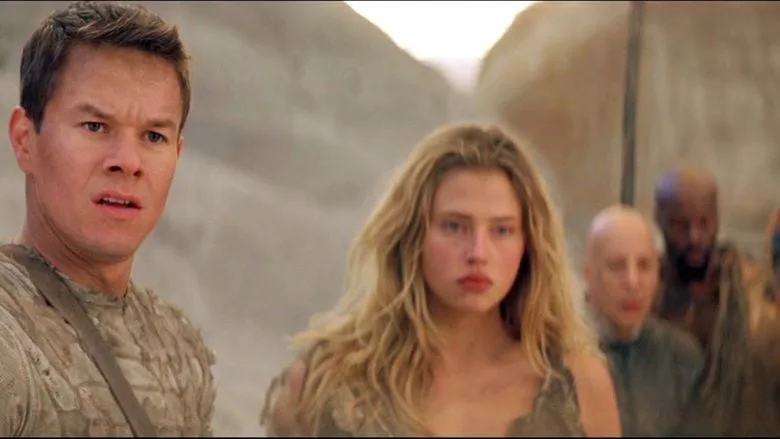
Helena Bonham Carter takes on the role of Ari, an empathetic and forward-thinking ape whose performance resonates with a profound humanity. Carter, despite the prosthetic constraints, infuses Ari with a depth of emotion that transcends the simian façade. Ari becomes a beacon of hope and change within the rigid societal structures, challenging norms and forging connections between human and ape. Carter’s ability to convey Ari’s internal conflicts and burgeoning alliance with Leo adds layers to the narrative. The chemistry between Wahlberg and Carter becomes a focal point, elevating the film beyond a mere clash of species to a nuanced exploration of coexistence.
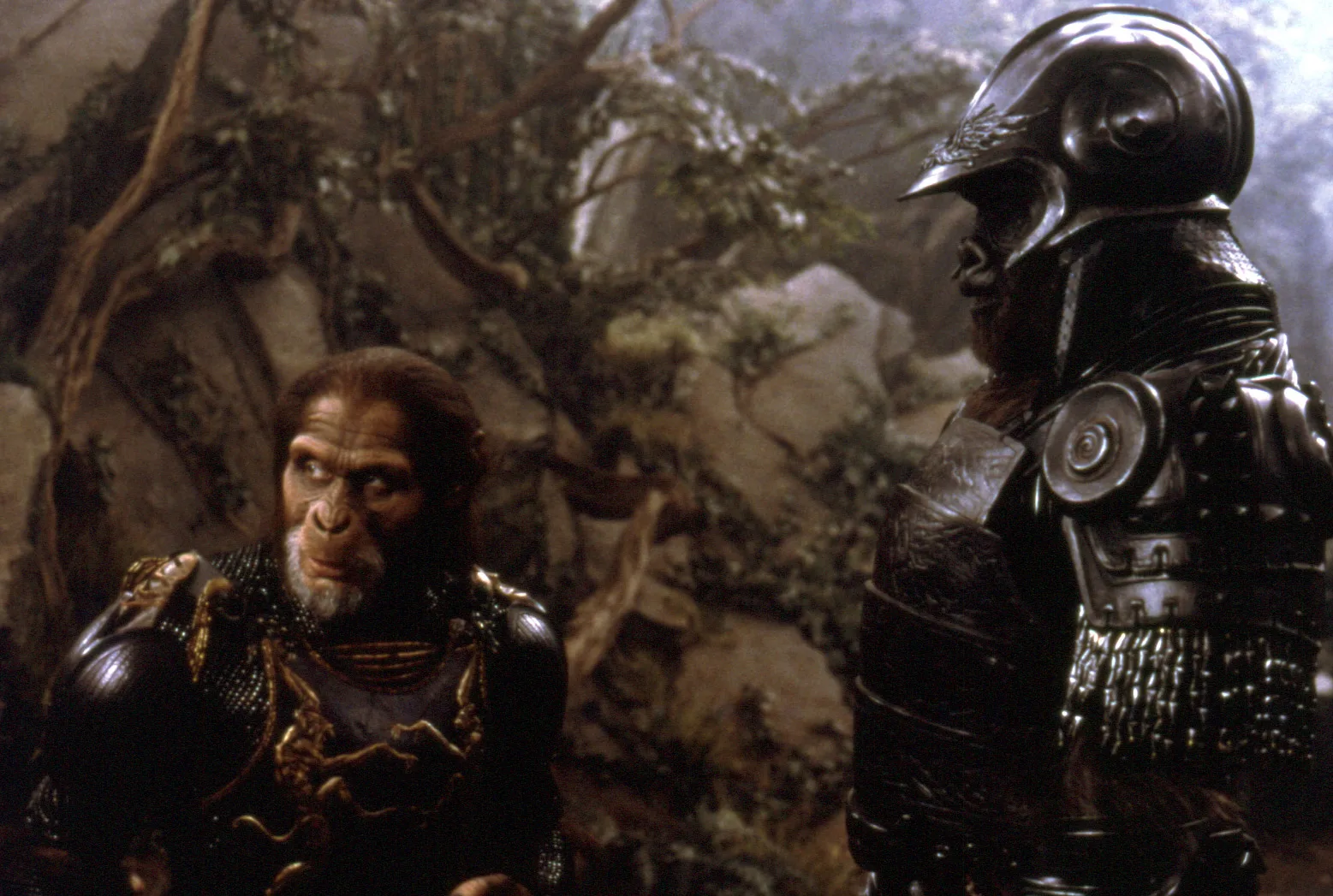
Enter Paul Giamatti as Limbo, the irrepressible orangutan who injects a touch of whimsy into the tumultuous narrative. Giamatti’s comedic timing and ability to infuse charm into even the most fantastical characters shine through in Limbo. Amidst the strife and power struggles, Limbo becomes a source of levity, providing moments of respite and comic relief. Giamatti’s performance adds a layer of complexity to the supporting cast, showcasing his versatility as an actor. Limbo, with his endearing quirks and comedic presence, becomes a memorable facet of the simian society, offering a counterbalance to the more intense dynamics at play.
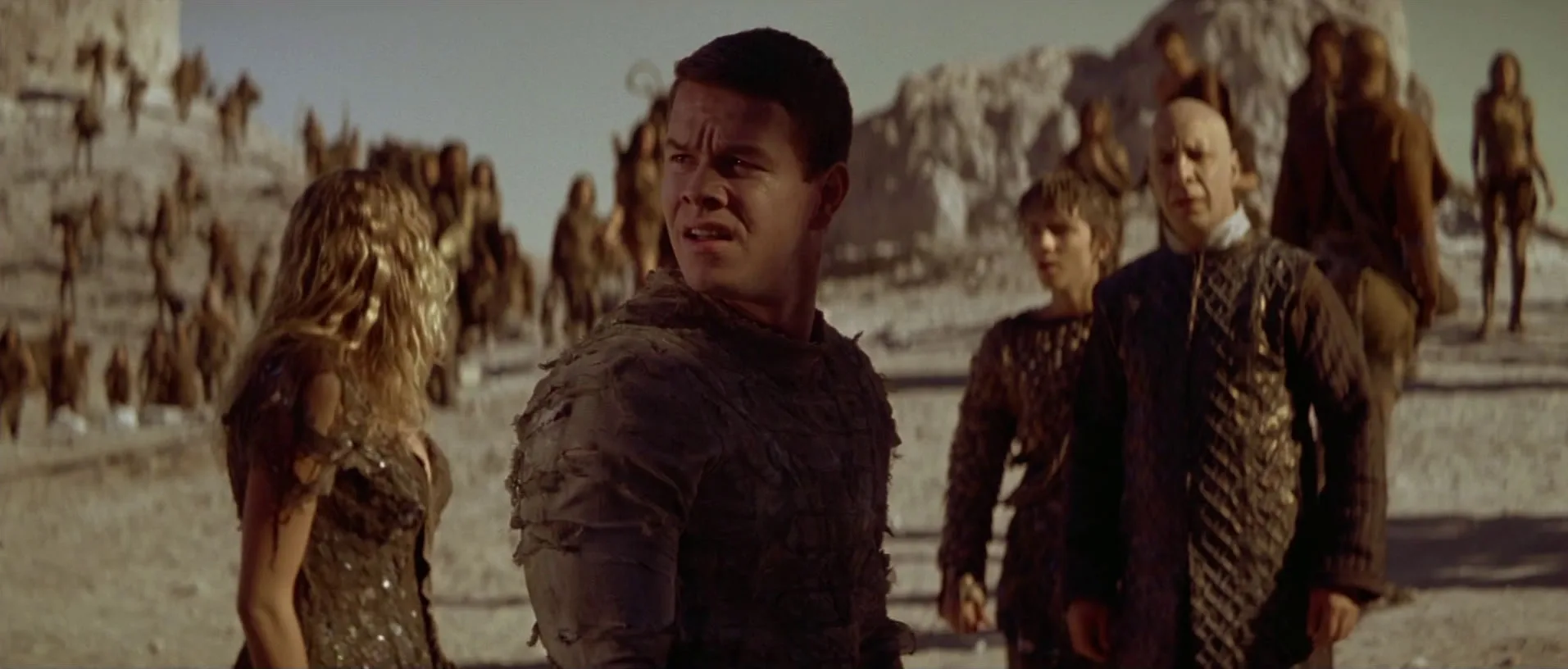
It should be noted that Burton, like any great director, turns his typically macabre visual style to a more perfunctory “blockbuster” tone for this film, as if to suggest he’s capable of more than creepy Johnny Depp movies of deep whimsy and little else. That said, for all the slick production design and spec-tacular costume, makeup and prosthetic work performed here – and the film’s ape effects are nothing if not the sole reason to seek this film out – there’s a confused narrative wobble at play here that makes the film tough to connect with at an emotional level. Burton’s signature style, with sweeping cameras and pronounced Dutch-angles everywhere, while visually captivating, proves a double-edged sword. The emphasis on stylized designs and quirky visuals sometimes overshadows the narrative’s depth. The film, at times, feels like a showcase of Burton’s artistic flair rather than a cohesive storytelling venture. The screenplay is strong enough but Burton can’t capture the subtlety often enough to make it a propulsive event.
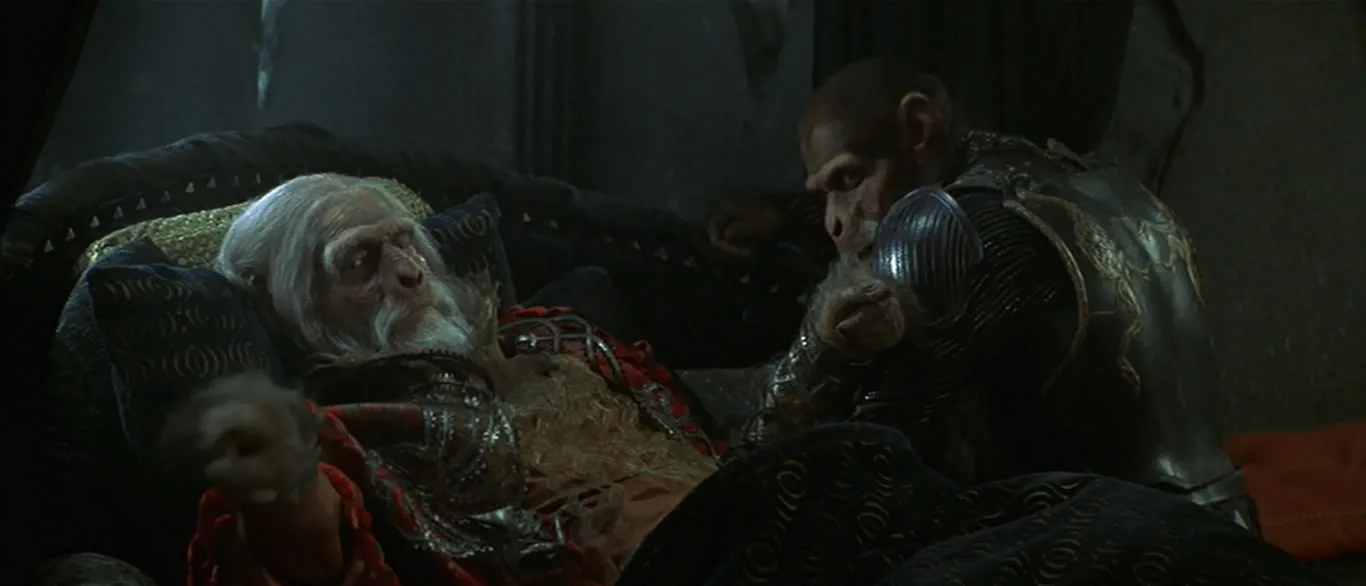
Patrick Doyle’s musical score becomes a character in its own right, weaving a sonic tapestry that guides the audience through emotional peaks and valleys. The score, while haunting, occasionally feels detached from the narrative, creating a dichotomy between visual and auditory elements. Doyle employs motifs that echo the primal struggle depicted on screen. The main theme, a melodic manifestation of tension and uncertainty, underscores Leo’s journey through the ape-dominated world. Strings and percussion intertwine, mirroring the power dynamics at play, with crescendos heightening moments of conflict and revelation. However, the score’s occasional detachment becomes apparent when compared to the film’s visual grandeur. While undeniably atmospheric, the music sometimes feels like an observer rather than an active participant in the storytelling, leaving a lingering sense of missed opportunities for a more cohesive marriage of sound and vision.

Burton’s Planet of the Apes is a visually ambitious, yet flawed remake. While technological advancements and standout performances elevate certain aspects, the film succumbs to the allure of style, leaving the narrative somewhat disjointed. Burton’s directorial panache, while captivating, might not be the perfect match for a story that requires a delicate balance between visual spectacle and narrative substance. It quickly becomes evident that, like the evolving apes it portrays, the film grapples with the challenges of finding its place in the vast landscape of reimagined classics, and is stuck wanting to be more than it could ever hope to be.

